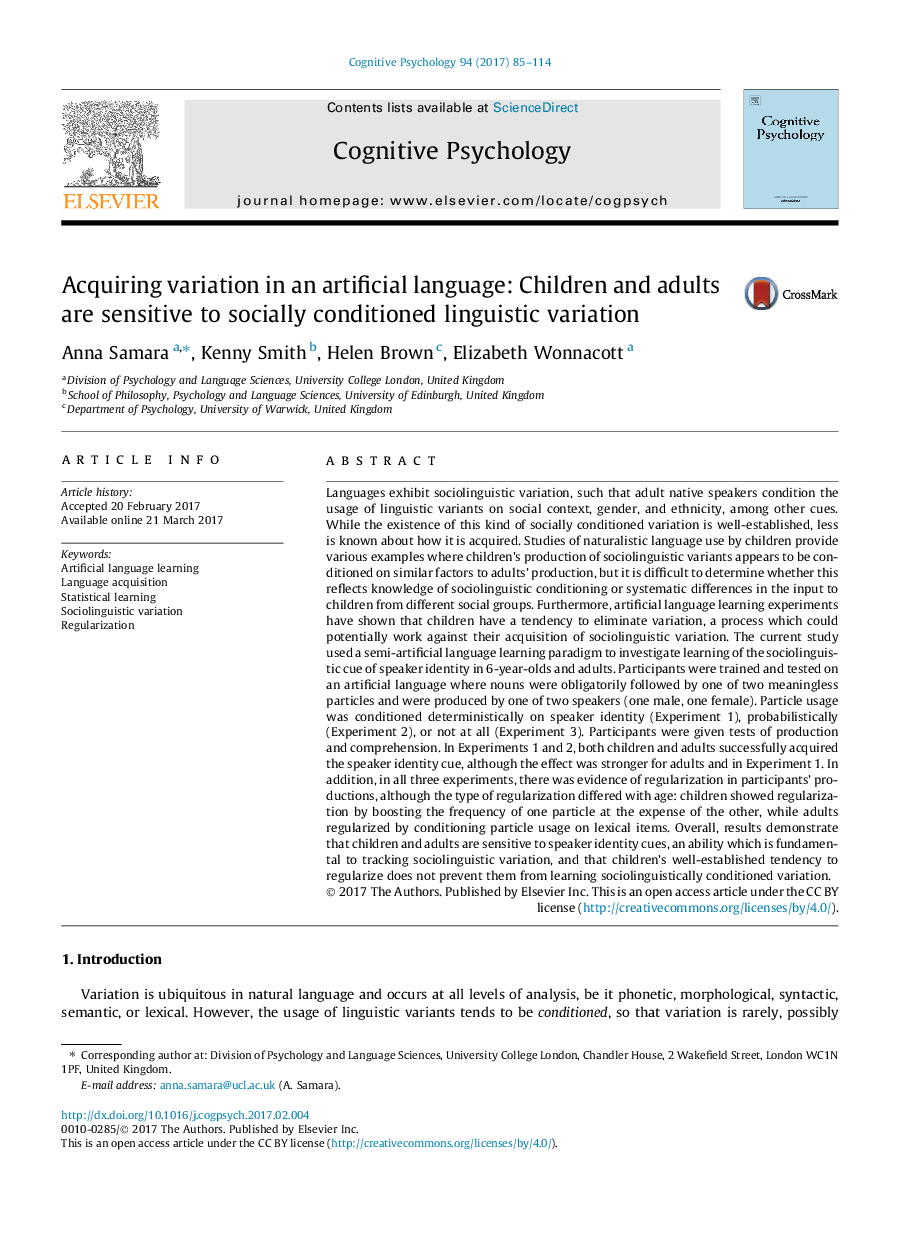| کد مقاله | کد نشریه | سال انتشار | مقاله انگلیسی | نسخه تمام متن |
|---|---|---|---|---|
| 5039743 | 1473370 | 2017 | 30 صفحه PDF | دانلود رایگان |
- We tested children's and adults' ability to acquire socially conditioned variation.
- Variable particle usage in a semi-artificial language was cued by speaker identity.
- Both children and adults picked up on the sociolinguistic speaker identity cue.
- Any tendency to regularize did not prevent the learning of conditioned variation.
Languages exhibit sociolinguistic variation, such that adult native speakers condition the usage of linguistic variants on social context, gender, and ethnicity, among other cues. While the existence of this kind of socially conditioned variation is well-established, less is known about how it is acquired. Studies of naturalistic language use by children provide various examples where children's production of sociolinguistic variants appears to be conditioned on similar factors to adults' production, but it is difficult to determine whether this reflects knowledge of sociolinguistic conditioning or systematic differences in the input to children from different social groups. Furthermore, artificial language learning experiments have shown that children have a tendency to eliminate variation, a process which could potentially work against their acquisition of sociolinguistic variation. The current study used a semi-artificial language learning paradigm to investigate learning of the sociolinguistic cue of speaker identity in 6-year-olds and adults. Participants were trained and tested on an artificial language where nouns were obligatorily followed by one of two meaningless particles and were produced by one of two speakers (one male, one female). Particle usage was conditioned deterministically on speaker identity (Experiment 1), probabilistically (Experiment 2), or not at all (Experiment 3). Participants were given tests of production and comprehension. In Experiments 1 and 2, both children and adults successfully acquired the speaker identity cue, although the effect was stronger for adults and in Experiment 1. In addition, in all three experiments, there was evidence of regularization in participants' productions, although the type of regularization differed with age: children showed regularization by boosting the frequency of one particle at the expense of the other, while adults regularized by conditioning particle usage on lexical items. Overall, results demonstrate that children and adults are sensitive to speaker identity cues, an ability which is fundamental to tracking sociolinguistic variation, and that children's well-established tendency to regularize does not prevent them from learning sociolinguistically conditioned variation.
Journal: Cognitive Psychology - Volume 94, May 2017, Pages 85-114
